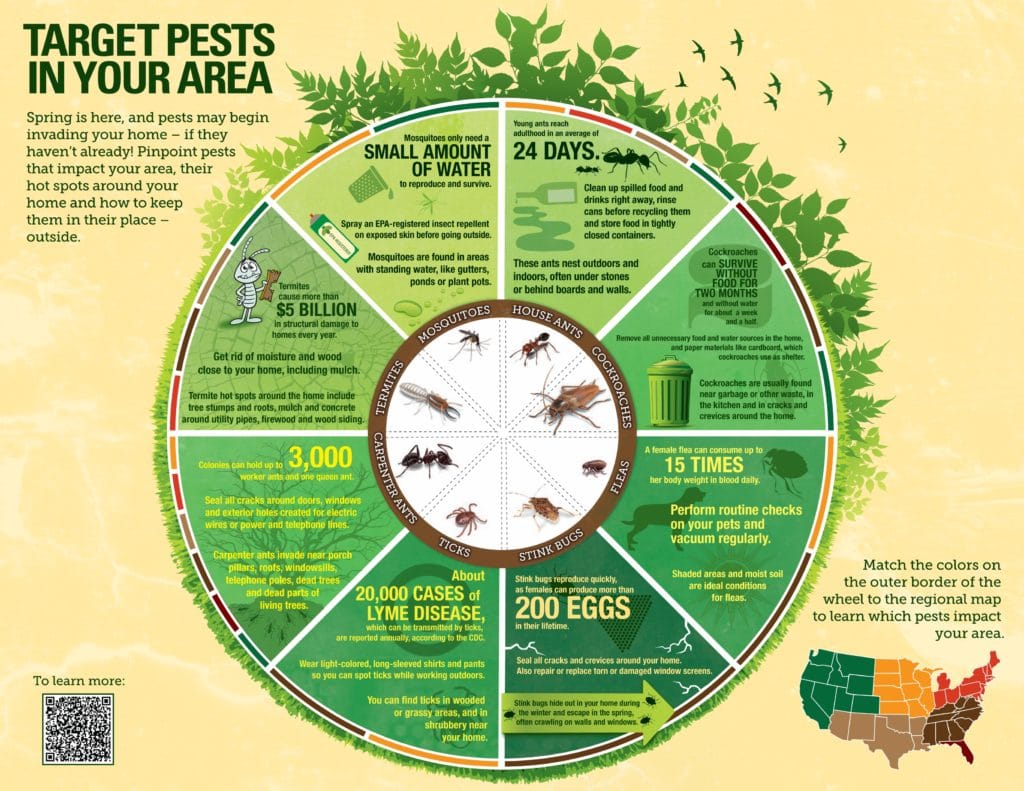Pest-Proofing Your Yard: Tips For Maintaining Outdoor Bugs At Bay
Pest-Proofing Your Yard: Tips For Maintaining Outdoor Bugs At Bay
Blog Article
Material By-Lambertsen Pittman
Imagine your yard as a sanctuary, a place of harmony and appeal. However, the visibility of outdoor parasites can rapidly disrupt this idyllic photo. What happens if there were simple yet reliable means to maintain these unwanted visitors away and safeguard your garden sanctuary? By complying with a couple of practical ideas and implementing natural methods, you can create an unified exterior area where your plants can grow undisturbed.
Natural Parasite Deterrents
To keep insects away from your yard naturally, plant fragrant natural herbs like mint and lavender. These fragrant plants not just add elegance to your yard but also work as effective parasite deterrents. Insects like mosquitoes, flies, and also some garden-damaging insects are pushed back by the strong aromas discharged by these natural herbs. Merely positioning them purposefully around your yard can help develop an all-natural obstacle versus undesirable parasites.
In addition to mint and lavender, think about growing various other natural herbs like rosemary, basil, and lemongrass to even more enhance your yard's pest-proofing abilities. These herbs not only function as natural repellents yet also have the added advantage of working in food preparation or crafting home made treatments.
Strategic Plant Placement
Consider the design of your garden and the types of plants you need to tactically put them for maximum pest-proofing performance.
Start by grouping pest and pest control with similar resistance to bugs together. By doing this, you can develop an all-natural barrier that deters parasites from spreading out throughout your garden.
Additionally, putting pest-repelling plants like marigolds, lavender, or mint near even more prone plants can aid safeguard them. High plants, such as sunflowers or corn, can act as a guard for much shorter plants versus insects like rabbits or ground-dwelling bugs.
Remember to leave adequate space in between plants to enhance air circulation and minimize the danger of conditions that pests might bring.
Moreover, take into consideration planting strong-smelling natural herbs like rosemary or basil near susceptible plants to perplex parasites' detects and make it harder for them to find their targets.
Reliable Pest Control Approaches
For combating yard bugs successfully, carrying out a multi-faceted parasite control method is necessary. Beginning by motivating all-natural killers like birds, ladybugs, and hoping mantises to assist maintain parasite populaces in check. Introducing https://felixdwqja.aboutyoublog.com/27651312/eco-friendly-insect-control-natural-ways-to-keep-rodents-at-bay that draw in these beneficial insects can aid in parasite control. Furthermore, practicing termite elimination by getting rid of debris and weeds where bugs may conceal can make your garden much less friendly to unwanted site visitors.
Take into consideration making use of physical barriers such as row cover fabrics or netting to shield prone plants from insects like caterpillars and birds. Applying natural pesticides like neem oil or insecticidal soap can also be effective against particular bugs while being much less dangerous to advantageous bugs and the environment. It's crucial to revolve your plants each season to stop the accumulation of bug populaces that target specific plants.
On a regular basis check your plants for signs of bug damage so you can act promptly. By incorporating these methods and staying attentive, you can properly regulate yard parasites and delight in a growing, pest-free garden.
Verdict
So, there you have it - with the best techniques, you can keep pesky outside pests away from your yard and help your plants thrive.
Did you know that growing mint has been revealed to fend off insects and various other insects, lowering the need for harmful chemicals by approximately 60%?
By integrating all-natural deterrents and wise growing strategies, you can create an attractive and pest-resistant garden oasis for you to appreciate.
